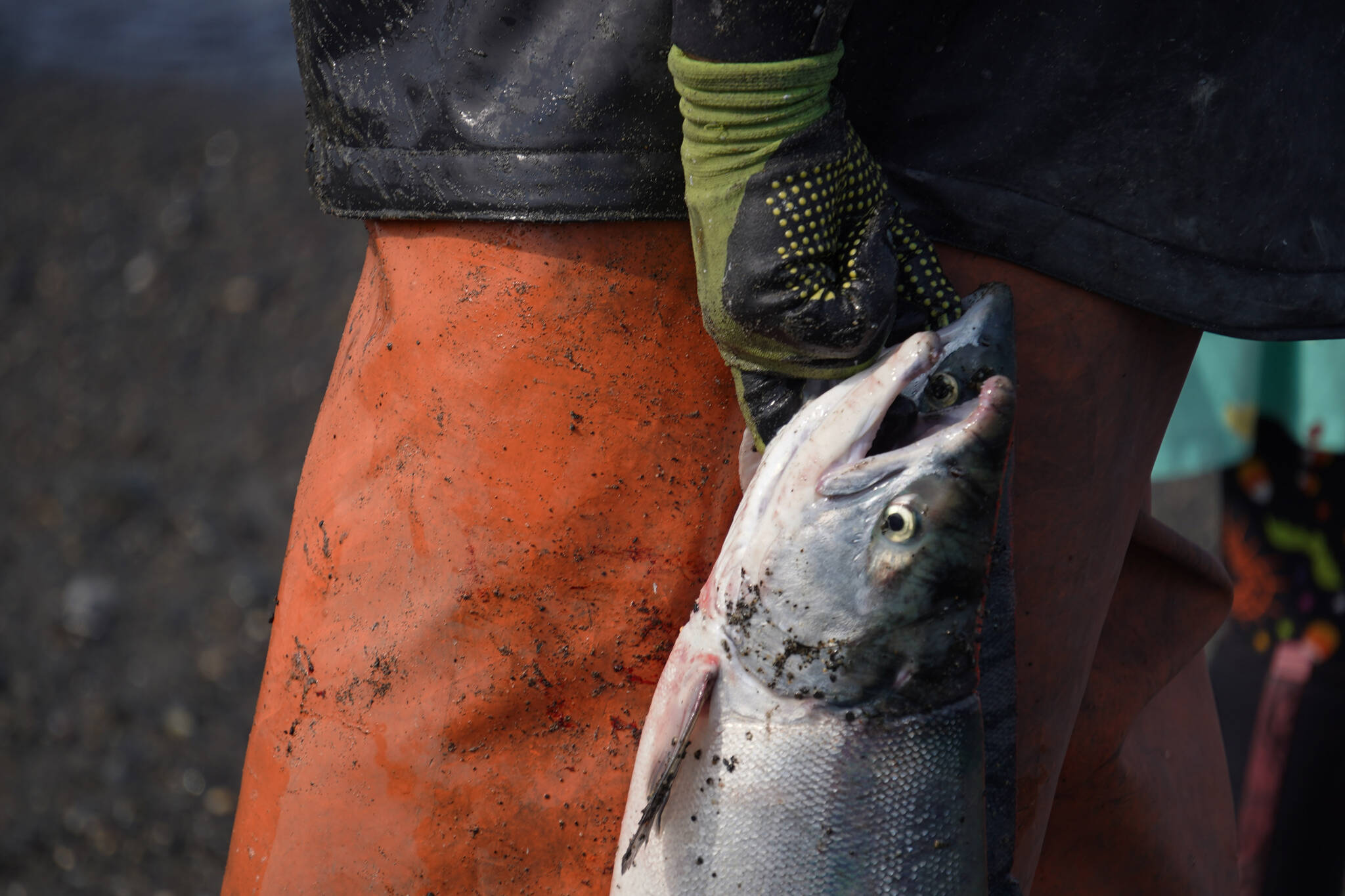After rejecting dipnets as permanent gear for Cook Inlet’s commercial setnet fisheries this summer and as emergency authorization for the gear expires, the Commercial Fisheries Entry Commission is again beginning a process to add dipnets as a permanent gear type for set gillnet permit holders in Cook Inlet. The commission will take public comments through Nov. 22 and decide on action this winter.
A public notice from the CFEC published on Friday says that the commission will mull a change to gear code allowing the use of dipnets under set gillnet permits in Cook Inlet at an undated meeting after the end of public comment on Nov. 22. The commission considered the gear earlier this year and decided to reject permanent approval, though gave dipnets emergency authorization for this summer’s season. According to supporting information attached to the notice, the commission is responding to “new petitions” for the gear to be added.
The commission will hold an in-person hearing in Kenai on Nov. 2 for oral comments, at Cook Inlet Aquaculture Association’s headquarters on Kalifornsky Beach Road. The notice says that the meeting will run from 10:30 a.m. to noon, though it “might be extended” to allow people who arrived before 11 a.m. to comment. The hearing will also be conducted virtually on Zoom, accessible through a link at cfec.state.ak.us.
Written comments can be sent by email to DFG.CFEC.PublicQuestions@alaska.gov.
The commission will decide whether to adopt the regulation change or take no action after the end of the public comment period, the notice reads.
After the State Board of Fisheries approved dipnets for local commercial fishers in March, the CFEC gave emergency approval to the gear in May. Dipnets were used this summer for several open periods. According to in-season harvest estimates from the State Department of Fish and Game, commercial dipnetters in the east side setnet fishery caught nearly 27,000 sockeye salmon and a single king salmon. The nearby central district drift fishery, for comparison, caught 1.6 million sockeye and nearly 80 kings.
After giving emergency approval, the commission in June decided not to approve dipnets as permanent gear, citing concerns with safety, efficiency, viability and cost. Commissioner Glenn Haight said many of those concerns were the purview of the Board of Fisheries.
The board will consider a series of requests calling for increased opening times and more fishing days at a work session in October. Authors write that those liberalizations of fishing time will “make our fishery more viable” while operating under the Kenai River Late-run King Salmon Stock of Concern Action Plan. If accepted, those proposals will be heard by the board sometime this winter.
For more information, visit cfec.state.ak.us.
Reach reporter Jake Dye at jacob.dye@peninsulaclarion.com.

